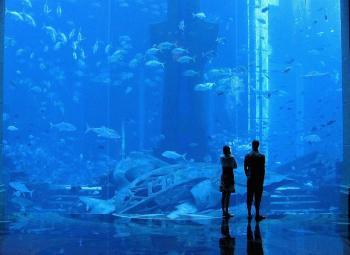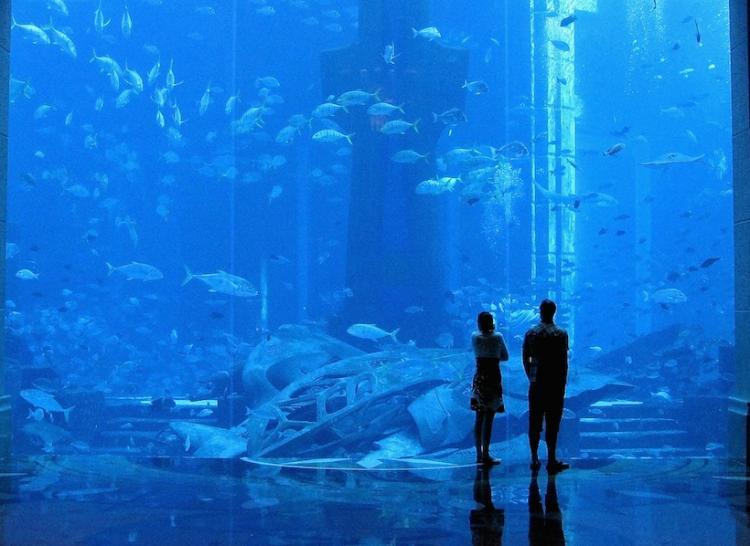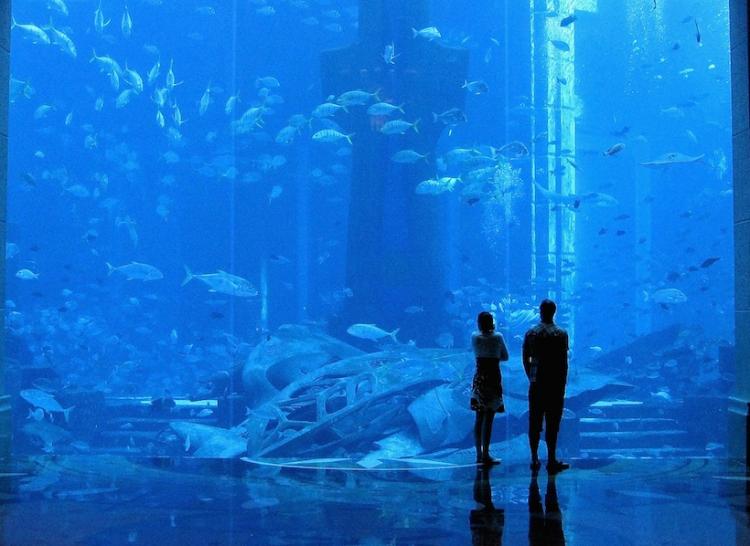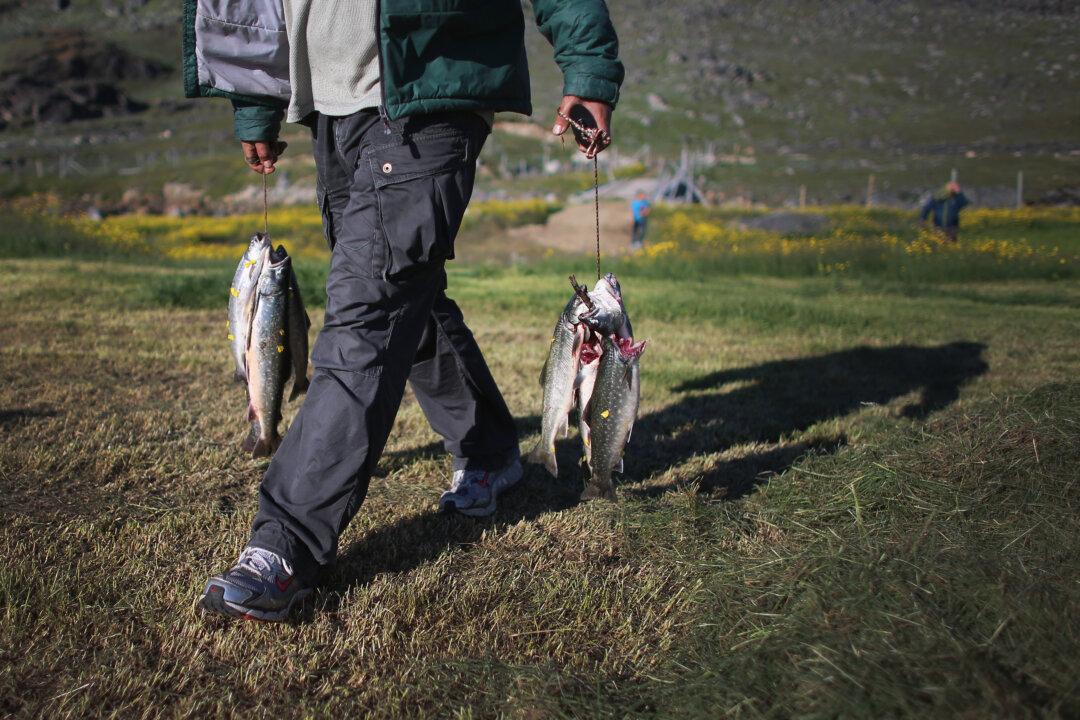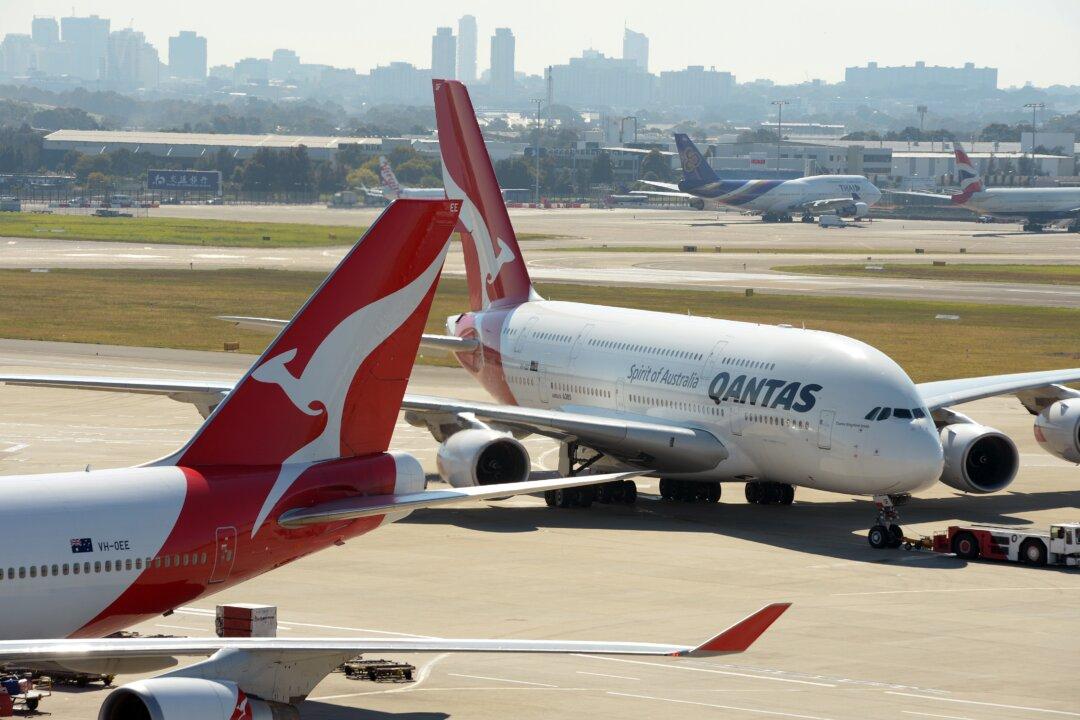DUBAI, United Arab Emirates—For 18 months it swam circuitously in silent frustration at an aquarium in Dubai’s most famous five star hotel.
Named Sammy by local media, the gentle whale shark was the star attraction at the Atlantis Hotel on Dubai’s man-made Palm Island.
Stuffed toys in the image of the captured fish were sold in the hotel’s tourist shop by the thousands.
However, the whale shark soon became a cause célèbre for local environmentalists and even former Baywatch star Pamela Anderson because of the circumstances of how it arrived at the newly opened hotel.
The infant shark, which is an endangered species, was caught off the coast of Dubai and taken to the ‘lost city’ attraction at the hotel soon after the US$1.5 billion resort opened in 2008.
Hotel officials said that the fish was in distress in UAE waters and it had been rescued, but environmentalists rejected the suggestion.
“Holding a whale shark in a constraining artificial environment where it is unable to feed and has a limited area to move, can have fatal consequences,” a group of activists wrote to the hotel in a letter that was published by local media.
They said that the shark, which was 13 feet when caught, can grow up to 46 feet in length.
Anderson, an ardent animal activist, who raised eyebrows by writing to the Dubai chain of KFC over chicken welfare, called the captivity of the whale shark “heartbreaking.”
Despite pressure on the hotel, and massive negative publicity, Atlantis refused for 18 months to release the shark.
Then suddenly, in a move that raised suspicion among environmental activists, Sammy was released back into the waters of the Persian Gulf on March 18.
Some speculated that the animal may have been close to death and the release was timed to avoid negative publicity.
London-based World Society for Protection of Animals (WSPA) raised concerns over the lack of rehabilitation of the whale shark prior to its release.
“WSPA is concerned that Sammy’s chances of survival are slim,” said Claire Bass, WSPA Program Manager in a statement in April.
“This was a wild animal caught and put into an unnatural environment—purely to amuse hotel guests—who has been unceremoniously dumped back into the ocean.”
Tracking Sammy
Working with the Florida-based Mote Marine Laboratory, Atlantis staff tagged the animal before its release.
The results of that experiment were released on Tuesday, almost three months after the whale shark was freed.
It shows an astonishing pattern where the animal traveled 216 miles in a month before disappearing from the radar in the seas around Qatar.
However, the tag attached to the animal detached prematurely, after only 33 days. The device was originally intended to stay attached for 100 days.
Steve Kaiser, vice president of Marine Science and Engineering at Atlantis, said that the early detachment was not unusual.
“The early release of tags has been reported by other researchers of whale sharks in other locations,” he said. “Researchers can only guess as to why they detach prematurely.”
Dr. Robert Hueter, director of Mote’s Center for Shark Research and leader of the tracking project, said that the team was able to put together a detailed account of the animal’s movements despite the tag detaching early.
“After Atlantis staff tagged and released her off Dubai, the whale shark took a mostly westward path through the Arabian Gulf, traveling south of Iran and then curving southward to waters off the coast of Qatar, ending up about 348 km [216 miles] west of her starting point,” he said.
Local environmentalists are pleased with Sammy’s success and have invited Atlantis and Mote to give a presentation on the data at a workshop in December.
The gesture was unthinkable just six months ago when the hotel was considered to be the last word in the exploitation of endangered species.
Dubai-based whale shark activist Jonathan Ali Khan told local daily Khaleej Times that Atlantis has scored a major PR victory.
“I think they’ve redeemed themselves,” he said.
Named Sammy by local media, the gentle whale shark was the star attraction at the Atlantis Hotel on Dubai’s man-made Palm Island.
Stuffed toys in the image of the captured fish were sold in the hotel’s tourist shop by the thousands.
However, the whale shark soon became a cause célèbre for local environmentalists and even former Baywatch star Pamela Anderson because of the circumstances of how it arrived at the newly opened hotel.
The infant shark, which is an endangered species, was caught off the coast of Dubai and taken to the ‘lost city’ attraction at the hotel soon after the US$1.5 billion resort opened in 2008.
Hotel officials said that the fish was in distress in UAE waters and it had been rescued, but environmentalists rejected the suggestion.
“Holding a whale shark in a constraining artificial environment where it is unable to feed and has a limited area to move, can have fatal consequences,” a group of activists wrote to the hotel in a letter that was published by local media.
They said that the shark, which was 13 feet when caught, can grow up to 46 feet in length.
Anderson, an ardent animal activist, who raised eyebrows by writing to the Dubai chain of KFC over chicken welfare, called the captivity of the whale shark “heartbreaking.”
Despite pressure on the hotel, and massive negative publicity, Atlantis refused for 18 months to release the shark.
Then suddenly, in a move that raised suspicion among environmental activists, Sammy was released back into the waters of the Persian Gulf on March 18.
Some speculated that the animal may have been close to death and the release was timed to avoid negative publicity.
London-based World Society for Protection of Animals (WSPA) raised concerns over the lack of rehabilitation of the whale shark prior to its release.
“WSPA is concerned that Sammy’s chances of survival are slim,” said Claire Bass, WSPA Program Manager in a statement in April.
“This was a wild animal caught and put into an unnatural environment—purely to amuse hotel guests—who has been unceremoniously dumped back into the ocean.”
Tracking Sammy
Working with the Florida-based Mote Marine Laboratory, Atlantis staff tagged the animal before its release.
The results of that experiment were released on Tuesday, almost three months after the whale shark was freed.
It shows an astonishing pattern where the animal traveled 216 miles in a month before disappearing from the radar in the seas around Qatar.
However, the tag attached to the animal detached prematurely, after only 33 days. The device was originally intended to stay attached for 100 days.
Steve Kaiser, vice president of Marine Science and Engineering at Atlantis, said that the early detachment was not unusual.
“The early release of tags has been reported by other researchers of whale sharks in other locations,” he said. “Researchers can only guess as to why they detach prematurely.”
Dr. Robert Hueter, director of Mote’s Center for Shark Research and leader of the tracking project, said that the team was able to put together a detailed account of the animal’s movements despite the tag detaching early.
“After Atlantis staff tagged and released her off Dubai, the whale shark took a mostly westward path through the Arabian Gulf, traveling south of Iran and then curving southward to waters off the coast of Qatar, ending up about 348 km [216 miles] west of her starting point,” he said.
Local environmentalists are pleased with Sammy’s success and have invited Atlantis and Mote to give a presentation on the data at a workshop in December.
The gesture was unthinkable just six months ago when the hotel was considered to be the last word in the exploitation of endangered species.
Dubai-based whale shark activist Jonathan Ali Khan told local daily Khaleej Times that Atlantis has scored a major PR victory.
“I think they’ve redeemed themselves,” he said.
